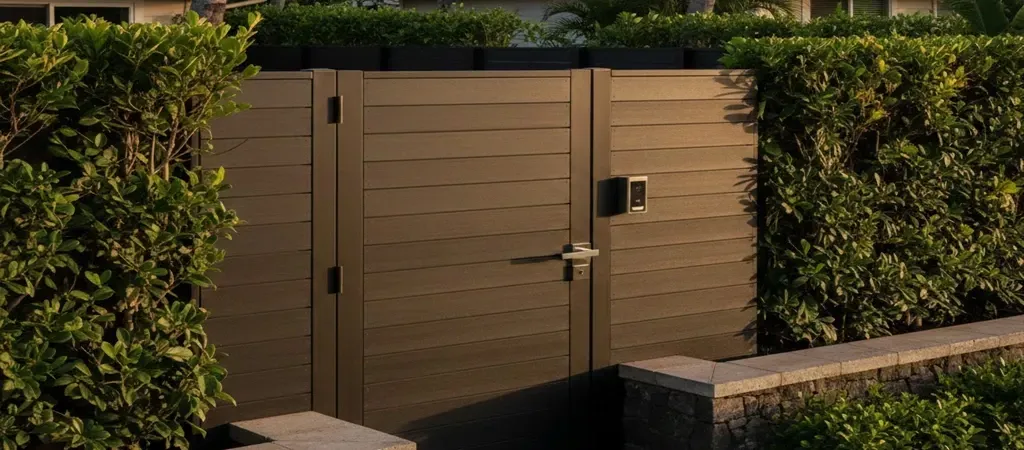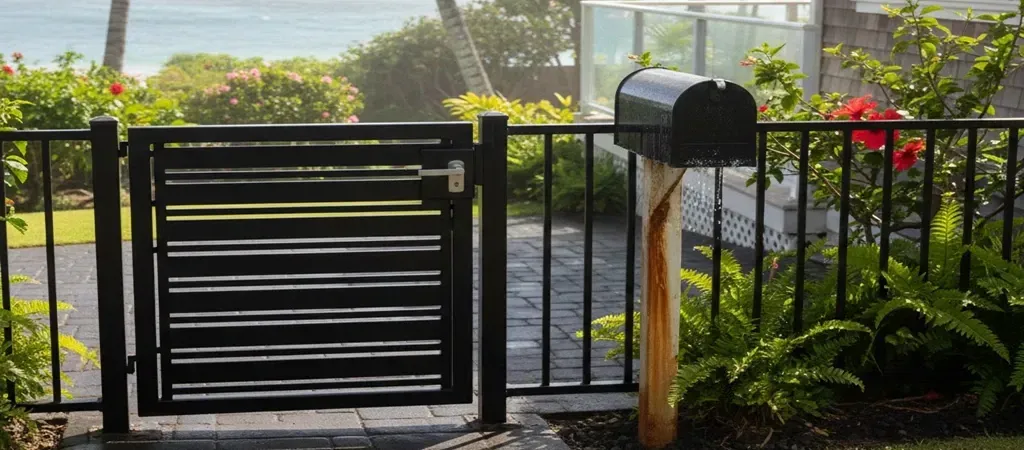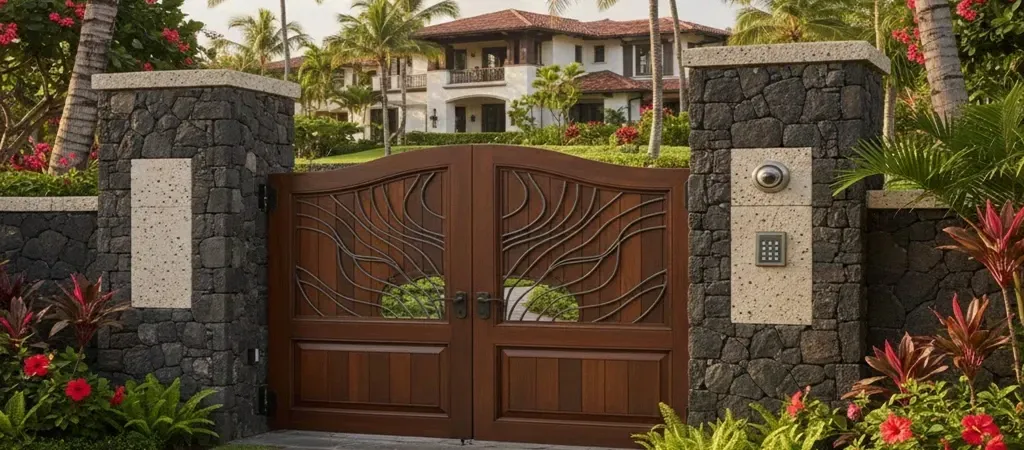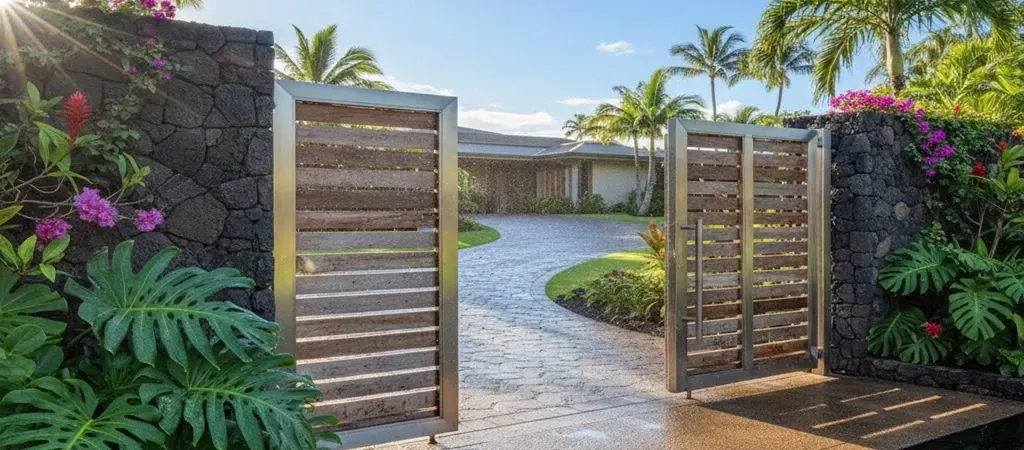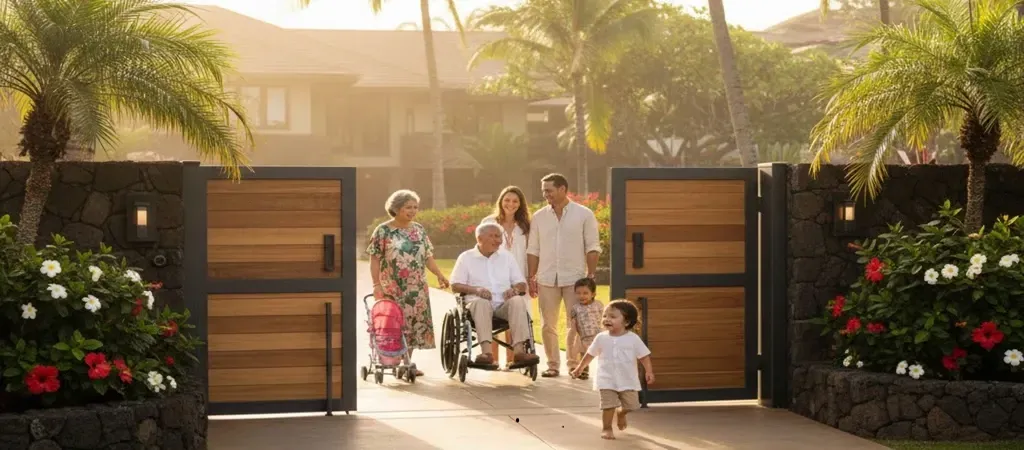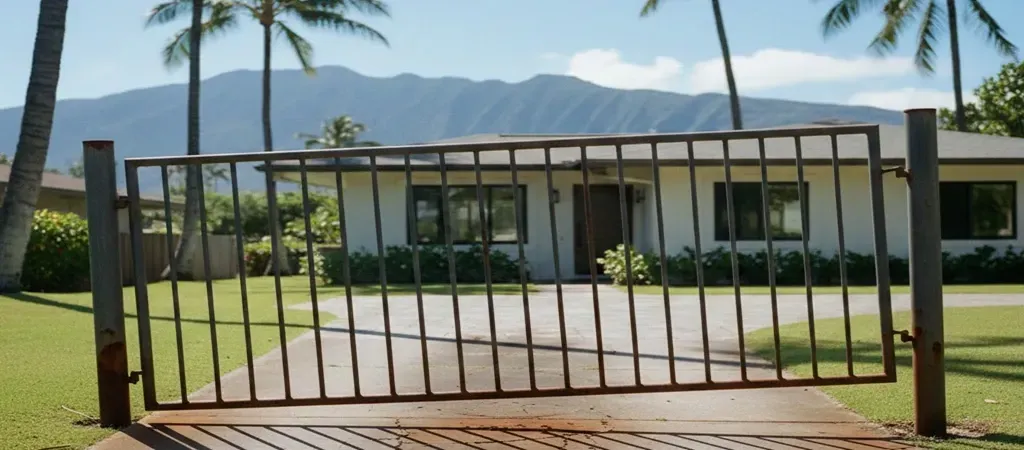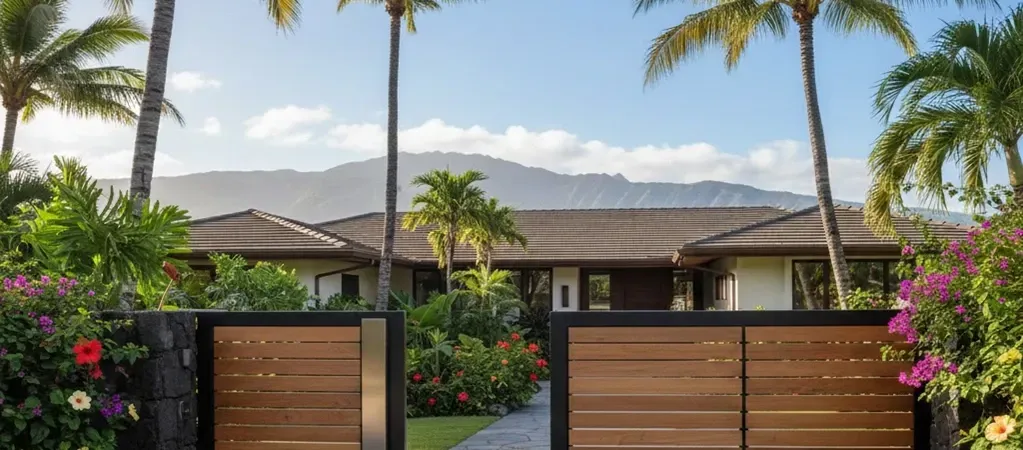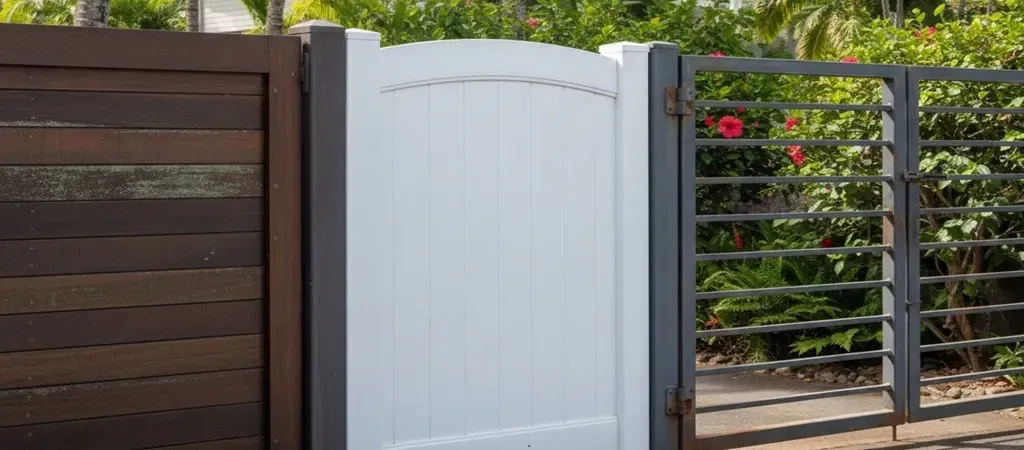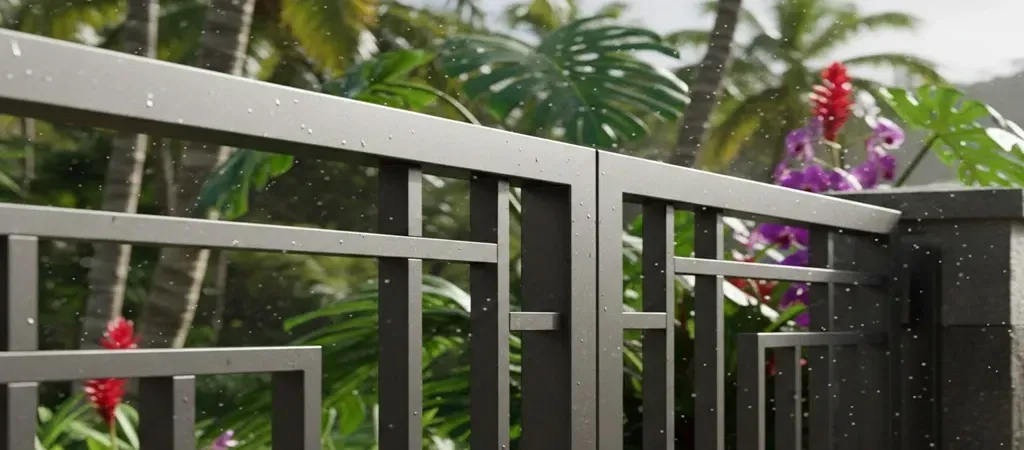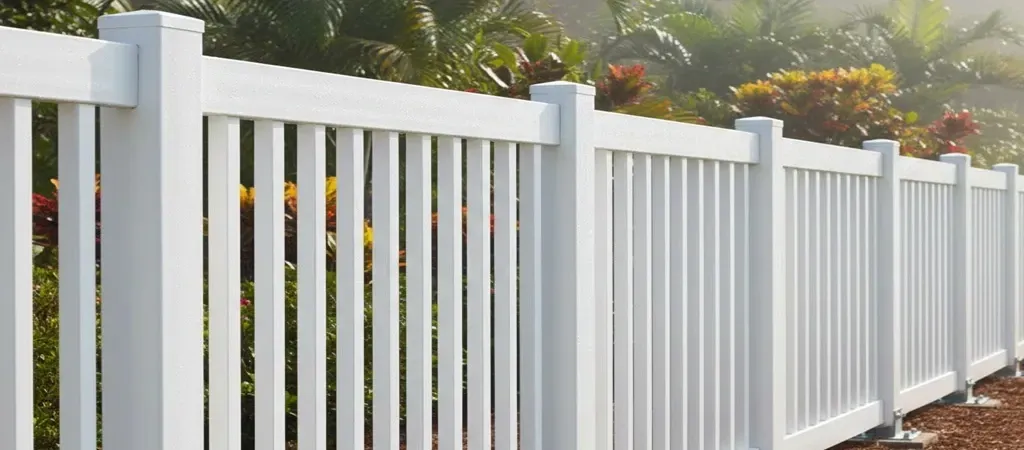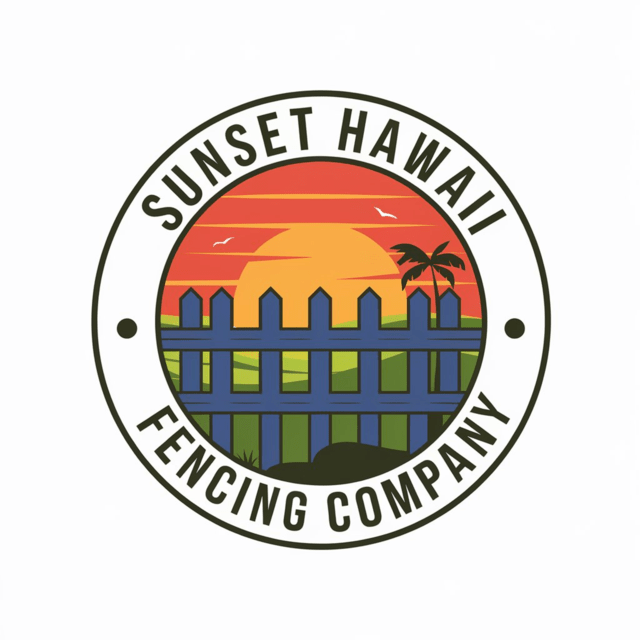What is PVC and Why It's Used in Outdoor Construction
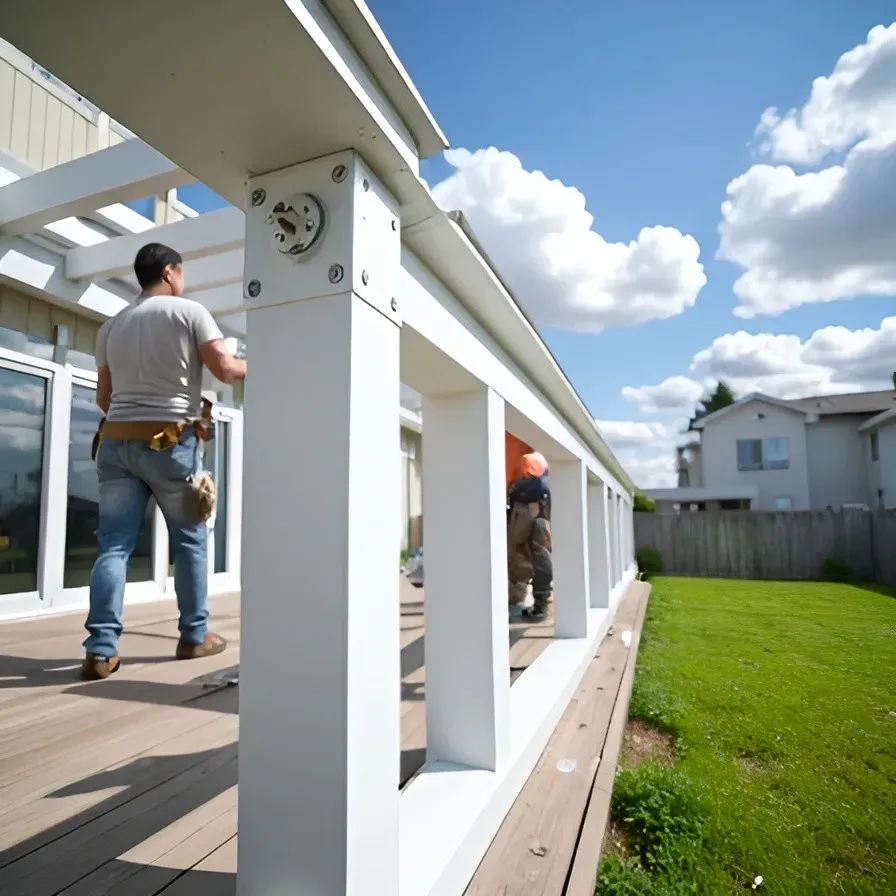
Discover what PVC is, its long-term uses, and why it is the ultimate pick for many contractors and homeowners.
What is PVC?
Polyvinyl chloride, or PVC, is a synthetic plastic polymer that is very strong, economical, and flexible. It is highly resistant to environmental damage, which is why PVC is a staple material for many industries, whether plumbing or construction.
It is also used in medical gadgets, water pipes, credit cards, and even clothes.
What is PVC Made From?
PVC is made from the monomers of polymerized vinyl chloride. Different additives are used during its chemical processing to obtain the required form of plastic and make it suitable for construction material.
In addition, the chemical structure of PVC gives it a specific form, so it doesn't break like wood and metals. Hence, PVC is increasingly opted for in outdoor projects due to its durability, adaptability, and cost-effectiveness.
Is PVC the Best Outdoor Solution?
Severe weather conditions are the worst threat to many outdoor constructions. Therefore, materials used for the outdoors must be able to handle the following requirements:
Harmful and harsh weather conditions- Ultraviolet radiations
- Dampness and leakage
- Bugs and mold
- Wear and tear
Let's have a more detailed look at what is PVC and why our experts recommend it for outdoor projects:
Weather Resistant
PVC does not break down easily in weather conditions like rain, wind, or extreme temperatures. It doesn't expand, break, or absorb water like wood does. In addition, it doesn't rust or corrode like metal.
These nonresistant qualities make it an excellent choice for harsh conditions over a long period.
Low Maintenance
PVC doesn't need maintenance. Even a simple wash with soap or water makes it clean. Hence, no coverage or painting is required, allowing homeowners and property managers to save time and maintenance costs.
PVC is a material that homeowners, contractors, and architects must use if they want smart, innovative, and comfortable building solutions.
Ultraviolet Stability
One of the best things about PVC is that it is UV-resistant. Special chemicals like titanium dioxide are added during production to prevent it from fading and breaking down when exposed.
This ensures the stability, increasing the lifespan of the buildings over time, even in extremely hot areas.
Resistant to Insects & Rot
PVC is not an organic material; thus, it doesn't attract termites, carpenter ants, or other pests that eat wood. It doesn't even rot or get mold, which are common concerns for outdoor structures constructed of natural materials.
Fireproof
Another advantage of Polyvinyl Chloride (PVC) is that it is naturally flame-resistant, unlike other plastics. It has a high ignition temperature and will put itself out if the flame source is removed.
Thus, PVC becomes a first-hand choice for places where fires are likely to occur or projects involving grills and fire pits.
Common Outdoor PVC Applications
More and more building professionals are choosing PVC over traditional materials for a variety of outdoor uses, such as:
PVC Decking
PVC decking looks like wood but doesn't need regular care or upkeep. It doesn't break or warp, and it doesn't fade. Many new homes have PVC or composite decks because they make decking appealing and beautiful.
Outdoor Siding and Trims
People use PVC trim boards and building siding to improve functionality and make their homes look attractive.
Railings and Fences
Polyvinyl chloride fencing (vinyl fencing) looks like painted wood but never requires repainting. Its ability to withstand the harsh weather makes it suitable for use as outdoor railings.
Drainage and Piping Systems
No matter how attractive the building is, it will not last long if it doesn't have proper drainage and plumbing facilities. Hence, plumbing and irrigation systems are among the most common advantages of using PVC. It helps water to flow without leakage and is resistant to many chemicals.
Outdoor Furniture and Fixtures
It can be easily shaped and painted, giving contractors much freedom to design different architectures. In addition, PVC materials can be used to make benches, bowers, planter boxes, etc, for outdoors.
Get PVC, Stay Environmentally Sustainable
Our PVC fencing has a proven advantage over other materials and delivers what it promises. Some of the essential features PVC offers are:
PVC is a type of plastic, yet unlike other building materials, it has a relatively low carbon footprint.- It is durable and economical, so regular maintenance is not required.
- Many companies now offer recycled PVC products for environmental sustainability, reducing waste, and eventually supporting the economy.
Conclusion
Polyvinyl Chloride, PVC, is a strong, budget-friendly, and easy-to-maintain material that works better than many other traditional options.
It is also an exceptional choice due to its weather-resistant qualities for projects that need to endure severe weather, be it relentless heat, torrential rain, or freezing conditions.
Lastly, PVC offers a versatile solution to many homeowners. It combines strength and flexibility to support outdoor applications while remaining cost-effective for plumbers, builders, and contractors.
